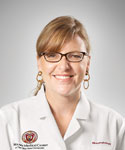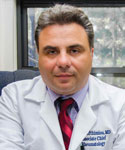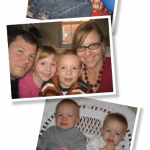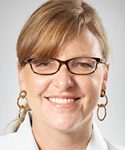 When Stacy Ardoin, MD, associate professor, Ohio State University and Nationwide Children’s Hospital, Columbus, Ohio, started medical school, she planned to become a rural primary care doctor. “But I later realized that I wanted to focus on a particular area [in which] I could gain a depth of knowledge,” she says. Then, when she worked with a rheumatologist in medical school, she fell in love with the specialty.
When Stacy Ardoin, MD, associate professor, Ohio State University and Nationwide Children’s Hospital, Columbus, Ohio, started medical school, she planned to become a rural primary care doctor. “But I later realized that I wanted to focus on a particular area [in which] I could gain a depth of knowledge,” she says. Then, when she worked with a rheumatologist in medical school, she fell in love with the specialty.
“I enjoy getting to know the patients I work with over time, focusing on improving function and understanding the immunobiology underlying disease manifestations and therapies,” Dr. Ardoin says. “Because I was also trained in pediatrics, I wanted to see both adults and children, so I pursued a combined adult and pediatric rheumatology fellowship.”
Petros Efthimiou, MD, associate chief, Division of Rheumatology, New York Methodist Hospital, Brooklyn, N.Y., was drawn to the specialty of rheumatology because he was fascinated by the ability to manipulate the dysfunctional immune system and help patients with complex autoimmune and auto-inflammatory conditions.
“I had great mentors, in the early stages of my medical career, who introduced me to the rheumatologist’s journey, which is enriched by constant intellectual stimulation created by rapidly materializing bench-to-bedside scientific advances,” he says.
As someone who has always been intrigued by puzzles—whether it was a mystery novel or a jigsaw puzzle, David Borenstein, MD, MACR, MACP, partner, Arthritis and Rheumatism Associates, and clinical professor of medicine, Division of Rheumatology, Department of Medicine, The George Washington University Medical Center, Washington, D.C., felt rheumatology was the right specialty for him. “In medical school, physicians always consulted the rheumatologists when they couldn’t figure out what was wrong with a patient, even if it wasn’t related to rheumatology,” he recalls.
Find Continued Fulfillment
Dr. Ardoin enjoys seeing adults and children with rheumatic disease improve and, ultimately, return to doing the things that they want to do. “I love when I take care of someone who has been quite ill or disabled by disease reach the point in their care where the disease is very manageable and takes a back seat in their life,” she says. “It is particularly fun and challenging to work with adolescents and young adults as they grow into adulthood. And nothing is better than helping a child get better—that tops everything!”
Dr. Efthimiou has found that his patients keep challenging him to become better, which keeps his passion for rheumatology alive. “There are many protean presentations for different diseases. A physician needs to constantly second guess himself,” he says. “I also need to closely follow medical literature to remain updated so I can accurately answer patients’ questions.”
The field of rheumatology continues to be riddled with many unanswered questions, which maintains Dr. Borenstein’s interest and keeps the specialty fresh for him. “It’s an area of constant learning,” he says. “Just this week, I advised a physician who couldn’t determine what was wrong with a patient to perform a bone marrow biopsy—which revealed that she had leukemia.”
Dr. Borenstein believes that rheumatologists are problem solvers because they embrace the uncertain. “We are willing to go out on a limb and surmise what might be possible,” he says. “We are willing to continue to investigate and don’t give up easily.”
Recruiting Other Physicians
Dr. Ardoin believes that the best way to get others interested in rheumatology is the same way she became hooked—work with a rheumatologist who loves what they do and discover how interesting and rewarding the field can be.
“Any way that fellowship programs can promote early exposure to rheumatology—either in medical school or residency—would undoubtedly pay dividends in terms of recruitment,” she says.
Dr. Efthimiou has similar sentiments. “When medical students and physicians-in-training come in close contact with rheumatology in the early stage of their careers, they often become enamored with the discipline and decide to become rheumatologists,” he says. “Unfortunately, however, because of the fragmentation of medical education, many young doctors are never exposed to the beauty of this specialty.”
Consequently, he is a strong proponent of offering opportunities for early involvement with the subject in medical school and post-graduate program curricula.
Dr. Borenstein has found the profession to offer an excellent work–life balance—which should appeal to budding physicians. “Because therapies have become so effective, there are fewer severely ill patients, and they aren’t hospitalized as much,” he says.
“After 40 years of being a rheumatologist, I enjoy it as much as when I started,” Dr. Borenstein concludes. “What other types of physicians can say that? While many other doctors complain of being burned out, many rheumatologists at my age remain practicing because we truly enjoy it.”
Karen Appold is a medical writer in Pennsylvania.





